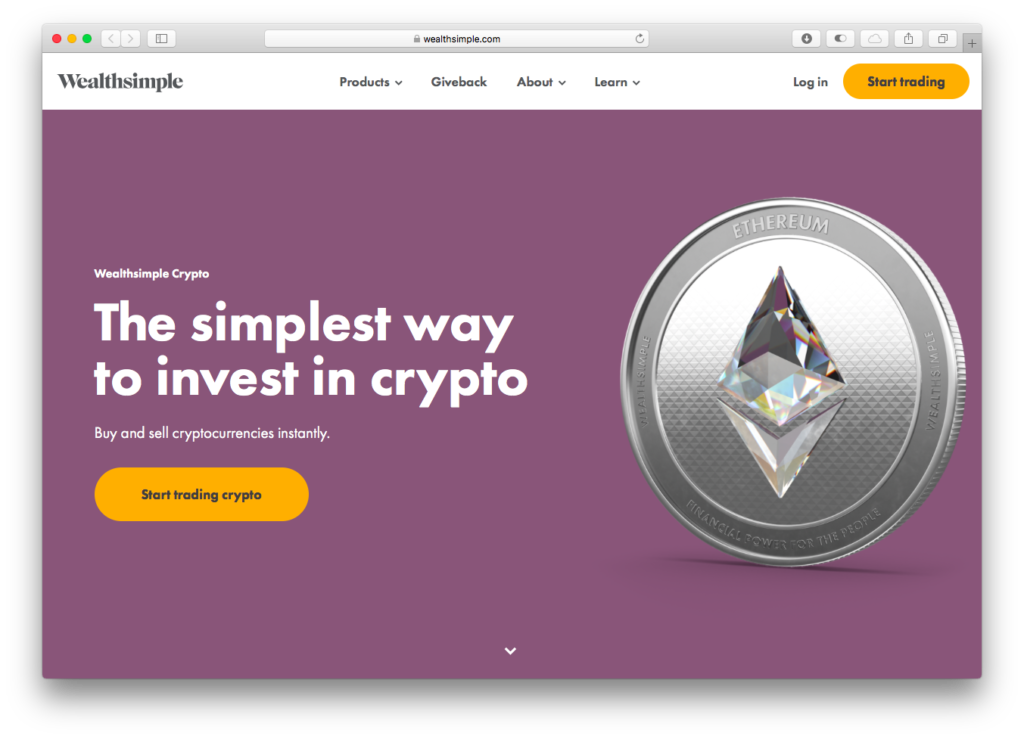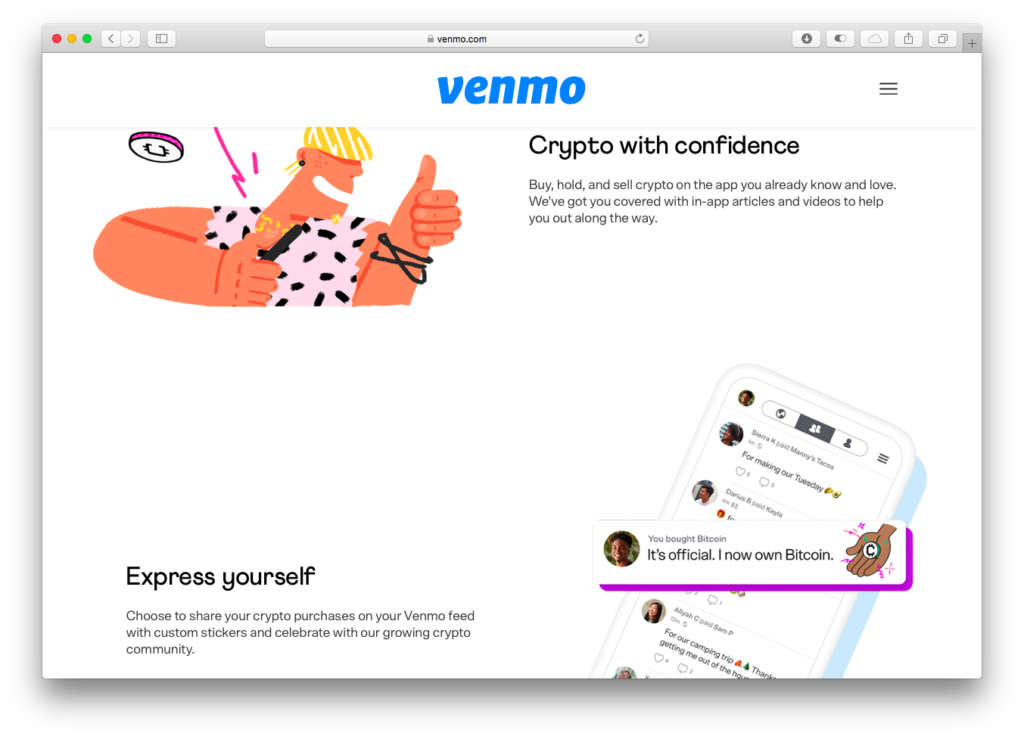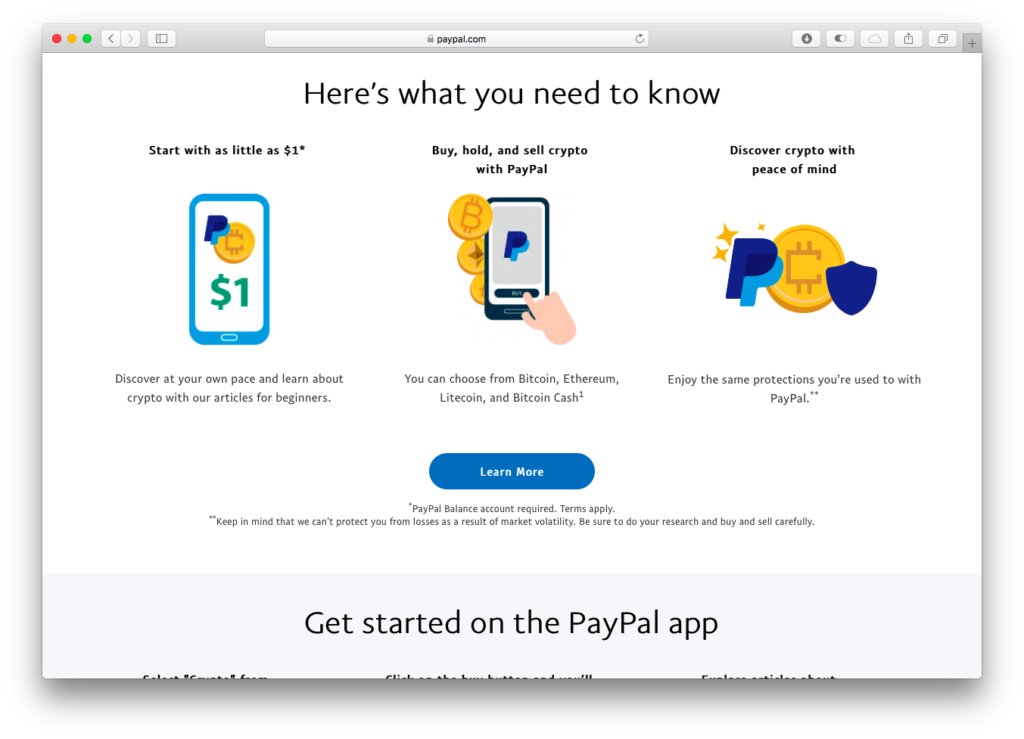Paypal, Venmo and Square opened up buying and selling cryptocurrency in their apps in the last year, at least to customers in the USA.
Recently, the Canadian investing service Wealthsimple announced the ability to “buy and sell cryptocurrencies instantly”, starting with a list of about a dozen such tokens.
The benefit of such widely used services offering easy access to cryptocurrencies is clear: anyone who has been curious about bitcoin and other cryptocurrencies can now ‘buy’ them. They can experience dizzying gains and crushing losses. It’s informative and educative. And it goes beyond crypto: more people than ever can experience how this volatile an asset behaves.
At the same time, the highly abstracted nature of these experiences means that people may not understand what makes these tokens important beyond volatile curiosities. Particularly the idea of total ownership of your tokens without a mediating party – like these apps.
With Venmo, Paypal and Wealthsimple you don’t actually own bitcoin or any cryptocurrency. There’s no indication that Paypal, say, buys a certain amount of bitcoin on some exchange and holds it on your behalf. At most, it holds some bitcoin – it its name – and when you ‘buy’ bitcoin within the app for US dollars, it earmarks, in software, some of that bitcoin against your account.
No wonder none of these will let you send your bitcoin (or crypto) to another one of your own wallets. You can only sell ‘your’ bitcoin back to them (Venmo, Wealthsimple faqs).
That goes against the very basic idea of bitcoin, which was that you shouldn’t have to rely on third parties like banks to hold your money for you. There’s a high risk that ordinary customers of these apps will view the highly abstracted, processed bitcoin (and other crypto) as mere trinkets, toys. Venmo encourages you to buy bitcoin so your friends can get a notification about it:

At least Square’s Cash app gives you an option to send your holdings to an external wallet.
Beyond this, people hold cryptocurrency at the very exchanges where they buy it from, in exchange for their local currencies.
Here the situation is somewhat less bad. You do have a bitcoin wallet, or several other wallets for different cryptocurrencies: you can deposit from an outside wallet to this one. You can send tokens from this wallet to an outside one.
But your ability to operate this wallet is controlled entirely by the exchange. If it decides you have violated its terms of use, or if the exchange is attacked, or there’s a technical problem that causes it to lose your credentials, you will no longer be able to access your tokens.
Tens of millions of people – more likely hundreds of millions – hold such ‘hot’ wallets at exchanges. They all trade control for convenience.
Only a small fraction of the total number of people who have bought bitcoin or cryptocurrency tokens hold them in wallets that they truly control, in what are termed ‘non-custodial’ wallets, meaning no one holds your tokens in custody other than you yourself.
Now while you have total and exclusive control, you also bear sole responsibility for keeping your access keys and recovery passphrase safe. A significant fraction of the bitcoins that have ever been mined have been just lost because people forgot or lost what they needed to access them.
Today mediating companies like PayPal and exchanges like, say, India’s CoinDCX or the USA Coinbase, far outspend non-custodial wallets on acquiring new customers.
I think for the decentralised economy to cross any sort of realistic threshold of relevance, vastly more people need to experience holding their own tokens in non-custodial wallets. That’s when they’ll get a sense of what decentralised tokens, decentralised money means.
(ends)



